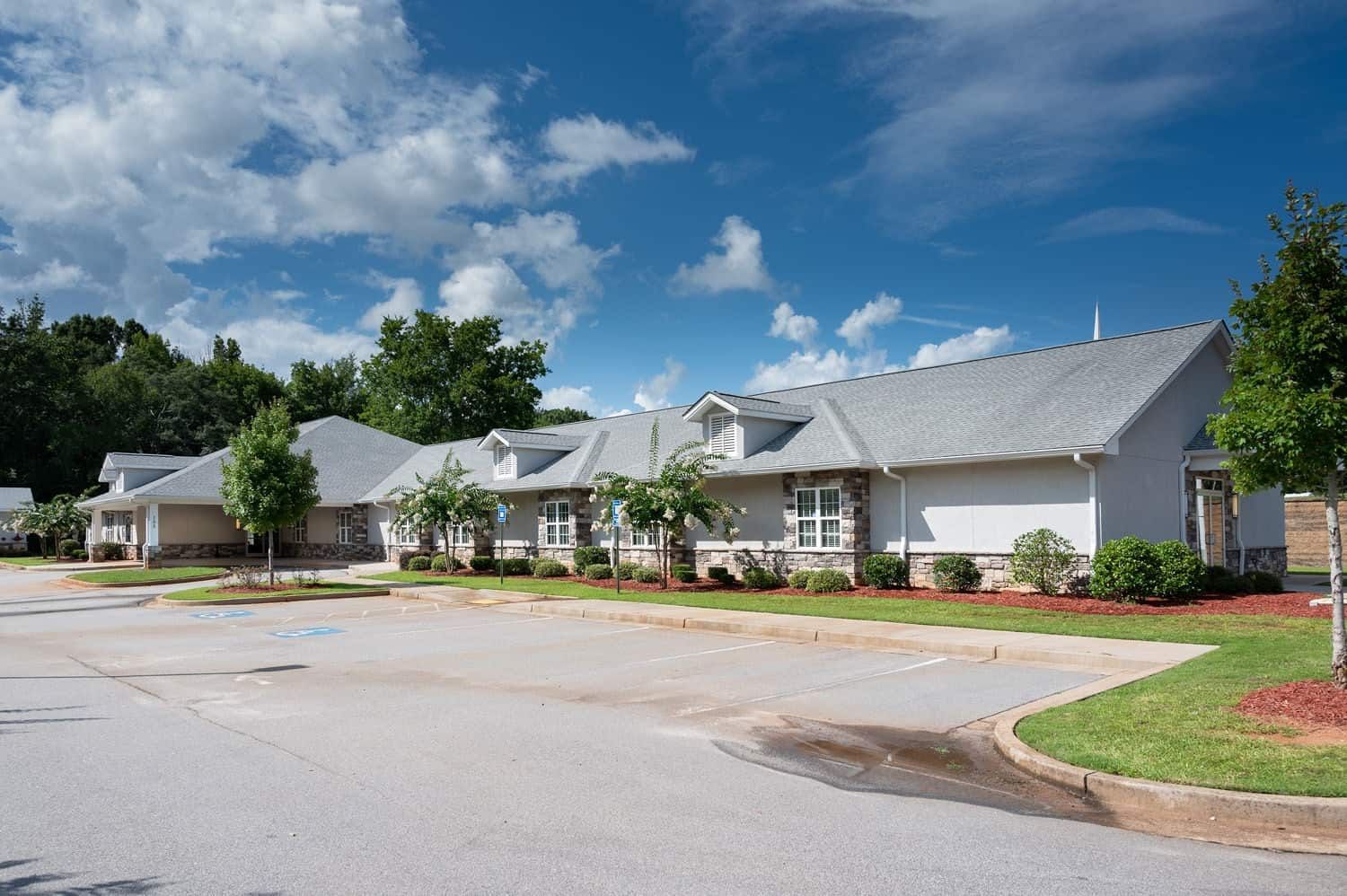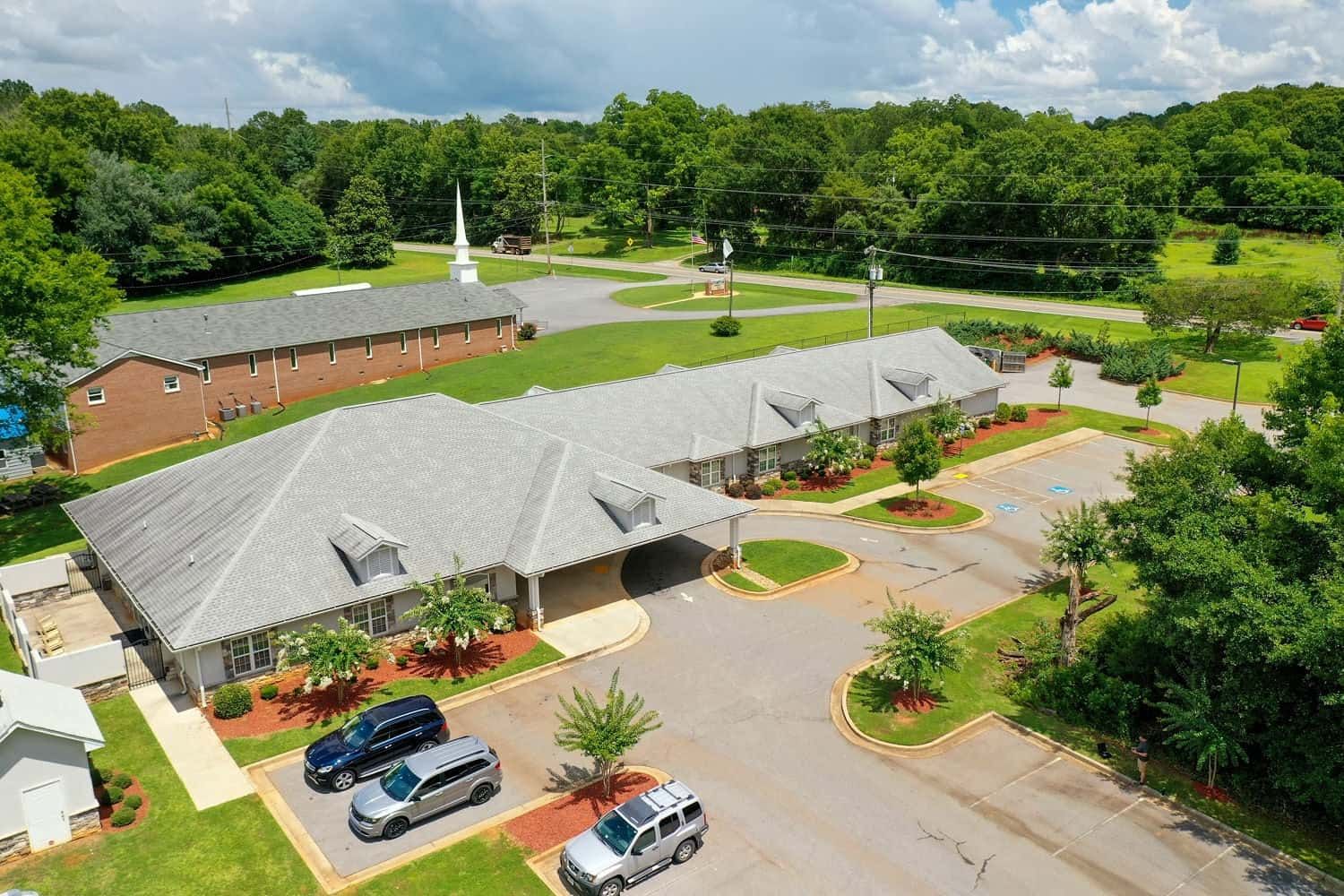Fentanyl Rehab in Atlanta
At our Fentanyl rehab in Atlanta, Georgia, we understand that a program for addiction treatment can only be successful when it employs a staff of licensed and experienced experts. Our fentanyl rehab in Atlanta offers people from all walks of life the opportunity to diffuse the power the drug has over them and walk away from abusing it. Our addiction specialists work with each person to ensure they have access to powerful therapy modalities that help change the way someone with a substance use disorder thinks and acts.
Learn more about our Georgia addiction treatment programs, or call us now at 762-366-0100.
Our Fentanyl Rehab Programs Near Atlanta
Our fentanyl rehab in Atlanta meets the needs of people during different stages of recovery. The following are the stages of treatment clients go through during fentanyl addiction treatment:
- Fentanyl Detox: The first stopping point when attacking the issue of addiction is to attend our Fentanyl Detox program. Detox provides round-the-clock supervision during the challenging first days of going off fentanyl.
- Residential Treatment: We also provide Residential Rehab to continue the work begun during detox. Also providing 24/7 care, residential treatment includes several types of therapy that help people with substance use disorders understand their power to stop abusing fentanyl.
- Dual Diagnosis Treatment: We also provide dual diagnosis treatment for people who have both an addiction and a mental health disorder, such as PTSD, bipolar disorder, depression, and more.
- Addiction Aftercare Treatment: It is best to continue treatment after residential rehab with addiction aftercare programs. These programs can include peer support group, outpatient therapy, and sober living homes. Aftercare helps clients continue their recovery and maintain the skills they’ve learned in residential rehab.
About Fentanyl Addiction
Fentanyl is a synthetic opioid drug used to treat pain and as an anesthetic. This potentially dangerous drug has become a popular choice for many who seek a way to achieve a sensation of euphoria or numbness. When a person takes fentanyl, it binds to the opioid receptors in the brain. This blocks out any feelings of pain and provides an elevated sense of being high.
The drug can be taken orally, snorted, smoked, or sniffed. It is often mixed with heroin or other types of drugs, and the person taking it doesn’t know the ingredients in it. This increases the likelihood that a person can overdose on it.
Fentanyl is a very powerful synthetic opioid drug classified as a Schedule II drug. This means it has a high potential for the user to become addicted to it. Once this happens, the person will need to attend fentanyl rehab to stop abusing the drug.
Signs and Symptoms of Fentanyl Addiction
When someone needs the professional help of a fentanyl rehab, they will exhibit signs. They and their loved ones may recognize several of them, which include:
- Feeling unable to get through the day without fentanyl
- Experiencing withdrawal symptoms when not using the drug
- Developing a tolerance that requires increasing the amount taken
- Cognitive difficulties
- Lethargy
- Sleeping a lot
- Slurred speech
- Obtaining fentanyl in illegal ways
- Nausea
- Vomiting
How Addictive is Fentanyl?
Fentanyl is approximately 50 times stronger than heroin and 100 times stronger than morphine. It is cheaply produced and often inexpensive to purchase, making it easy for people to become addicted to it. Once an addiction sets in, the person will need to attend fentanyl rehab to overcome their abuse of the drug.

Begin Your Treatment Today
Your journey to a healthier, more fulfilling life starts here. The Retreat of Atlanta’s caring professionals are committed to providing individualized treatment that respects your unique needs. Reach out now to secure your place in our supportive community and take the first step towards a brighter future.
Fentanyl Addiction Statistics
The Drug Enforcement Administration (DEA) reports that in 2023, they seized 77 million fentanyl pills and almost 12,000 pounds of fentanyl power. This is the highest amount of the drug the DEA has intercepted in any year. This amount alone is enough to kill every single American. This proves especially problematic because the fentanyl manufactured these days is more potent and dangerous than that of previous years.
DEA lab testing results in 2024 showed that half of the fentanyl pills tested were dangerous enough to potentially cause an overdose or death. In fact, a dose that is potentially deadly is only two milligrams, which is about the size of the tip of a pencil.
How Do I Know I Need Fentanyl Rehab?
Discovering that a person has developed a substance use disorder and needs professional help can be disorienting. They may try to convince themselves and others that they are fine or can handle getting better independently. When it’s time to turn to a facility that treats fentanyl addiction, a person’s life has typically become unmanageable.
Additional signs that you need fentanyl rehab include the following:
- Diminished ability to perform at work or school
- Problems in relationships with friends, family, and co-workers
- Reckless behaviors while under the influence
- Loss of interest in hobbies or social activities
- Isolating from loved ones
- Erratic behavior and mood swings
Fentanyl Rehab Therapies
Fentanyl rehab is set up to provide multiple types of therapy that teach people to identify their triggers to use the drug and disarm them. Therapy modalities can be both individual and group sessions. Common therapies used to treat fentanyl addiction include:
- Medication-Assisted Treatment: Medication-assisted treatment (MAT) combines behavioral therapy with FDA-approved medications, like Sublocade and Vivitrol, to treat opioid use disorder (OUD).
- Individual Therapy: Individual therapy helps clients resolve personal issues that drive their addictive behaviors.
- Cognitive Behavioral Therapy: Cognitive-behavioral therapy (CBT) is an evidence-based therapeutic modality that focuses on changing unhelpful thought patterns and beliefs.
- Dialectical Behavioral Therapy: Dialectical behavioral therapy (DBT) is a type of CBT that focuses on improving skills in mindfulness, interpersonal effectiveness, emotion regulation, and distress tolerance.
- Group Therapy: Group therapy sessions allow peers to discuss similar struggles under the guidance of a licensed therapist.
- Family Counseling: Family counseling sessions help families heal from the negative impact addiction has had in their lives.
- Holistic Therapy: Holistic approaches can enhance traditional therapy with mind-body activities such as yoga, mindfulness, and breathwork.
- Psychiatry: Psychiatric medications can improve symptoms of co-occurring mental health disorders.
What To Expect At Our Fentanyl Rehab Near Atlanta
We created our fentanyl rehab in Atlanta to bring out the strength in people who want to overcome their addiction. We provide an initial assessment that helps us match each person with the right therapy sessions for their needs. Our staff members offer compassion, emotional support, and the benefit of their years of experience. Retreat of Atlanta also provides an array of prescription medications that help reduce withdrawal symptoms. These are available during both the detox process and residential rehab.
How Long Does Fentanyl Rehab Last?
Fentanyl rehab programs generally last 30-90 days. However, each person is different due to the severity of their addiction and any co-occurring mental health disorders. And, rehab doesn’t stop after active treatment—addiction recovery is a lifelong process.
First off, it’s vital to attend a drug detox program. For fentanyl, detox can last one to two weeks. Once the person safely goes through the acute phase of withdrawal, they’ll be ready to move onto residential treatment.
Residential treatment on its own can last 30-90 days. This will help the person build the healthy habits they’ll need for long-term recovery. Oftentimes, any co-occurring mental health disorders surface at this time since many people use fentanyl to self-medicate for these disorders.
After that, continuing treatment programs can last a few weeks or months. It depends on the level of care and the treatment program’s expectations. For example, partial hospitalization programs (PHPs) or intensive outpatient programs (IOPs) can last two to six weeks.
Overall, recovery from fentanyl is a lifelong process. It includes slips and relapses as the person improves their ability to stay drug-free. Regardless of how long fentanyl rehab lasts, the process is worth it and Retreat of Atlanta is here to help.
Begin Fentanyl Rehab in Atlanta Today
Has fentanyl addiction infiltrated your life or that of someone you love? When this happens, the only answer is to seek help from a first-class treatment program that understands the intricacies of treating substance use disorders. Retreat of Atlanta knows how challenging it is to stop using fentanyl for good. We built our program to support each person we treat with round-the-clock structured care. With our assistance, you can learn to disarm triggers and put healthy coping skills into play.
Contact us today to find out how our detox and residential programs work. We are happy to answer your questions and provide information about how your insurance plan can help cover treatment.
More on Fentanyl Addiction








